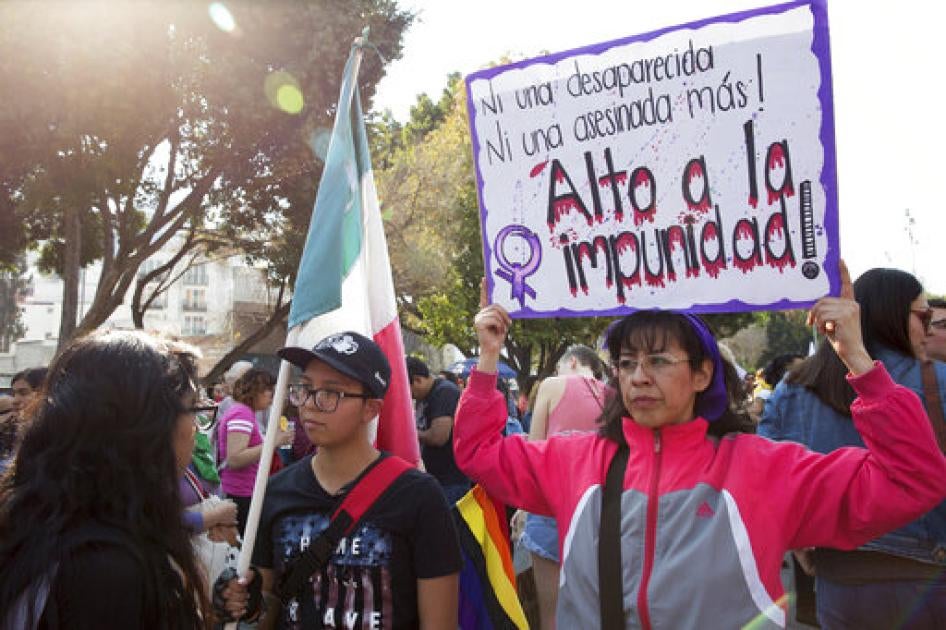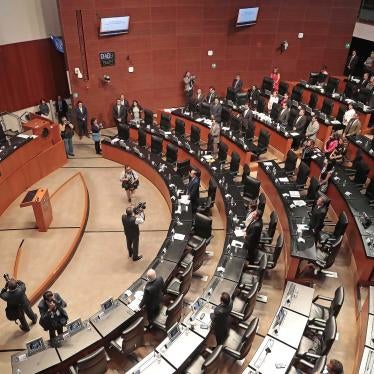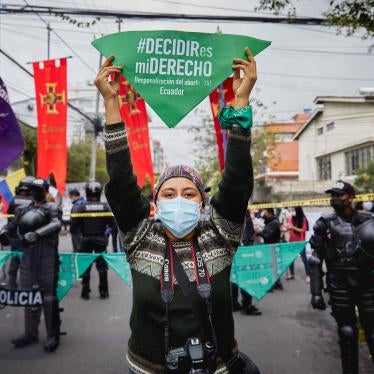On February 9, Ingrid Escamilla became one of the latest victims of Mexico’s ongoing wave of gender-based violence. The 25-year-old woman was brutally murdered, allegedly by her boyfriend, in their Mexico City apartment. The next day, a tabloid obtained photos of Escamilla’s mutilated body. The tabloid published the photos on the front page with the caption ‘La culpa la tuvo Cúpido’ (‘Cupid was to blame’), paraphrasing a famous love song.
When asked about the issue at a news conference later that day, President Andrés Manuel López Obrador told reporters that he did not want to talk about gender-motivated killings of women because he did not want “femicides to distract from the raffle,” referring to a raffle his administration had organized around the sale of the presidential airplane.
Over the following two weeks, as reporters continued to press him on the issue, the president blamed femicides on the “decadence of neo-liberalism,” said that his administration was “attending the root causes” of the problem by encouraging Mexicans to “love thy neighbor,” and published “Ten Commandments vs. Violence Against Women,” a list of ‘rules’ including “It is cowardice to hit a woman,” and “No to hate crimes against women.”
Escamilla’s murder caused renewed outrage over an issue that no longer feels new to many Mexicans: the pervasiveness of gender-based violence in Mexico and the failure of the government to take the issue seriously enough to work to end it. Despite longstanding efforts by activists for government action to stem these killings, the number of femicides has grown 137 percent over the past five years, according to the country’s National Prosecutor. Protesters took to the streets after Escamilla’s killing, spray-painting the presidential palace and clashing with police. They were not the first to protest gender-based violence in the past year.
Since October, Mexico’s top university, the National Autonomous University of Mexico, has been all but shut down by students protesting the harassment and sexual assault they suffer from faculty members. President López Obrador says the protests were organized by “conservative interests” to make him look bad.
In August, violent protests erupted after the authorities declined to suspend four Mexico City police officers accused of raping a 17-year old girl, saying that doing so would violate their labor rights. Mexico City’s mayor and city prosecutor accused the protesters of “provoking” the police.
In January 2019, a state legislator sparked protests around the country when she suggested that the solution to violence against women was a 10 p.m. curfew for all women in her state. The Mexican government defines “femicide” as the murder of a woman because of her gender.
Human rights activists in Mexico have long pushed the government to address these killings. They sued the government in the Inter-American human rights system to secure the Cotton Field judgment, which found that the Mexican government had an obligation not only to improve its investigation into crimes involving violence against women, but to take proactive steps to prevent such violence. They pushed for the passage of the 2007 Law on Women’s Access to a Life Free of Violence.
In 2019, the authorities reported 1,006 femicides, around a quarter of all women murdered that year. Women’s rights groups say this number is likely underreported, since many state and local authorities are unable or unwilling to recognize when gender played a factor in a murder, leading many femicides to be reported under the more widely recognized definition of homicide, which doesn’t identify gender as a motivating factor.
Mexico is facing an overall skyrocketing levels of violence and near-total impunity. However, the increasing number of women killed because of their gender is also rooted in other long-existing social problems, such as the tendency of the media to “romanticize” intimate partner violence as an understandable by-product of passionate love or of authorities to treat investigations and prosecutions of femicide as less important than other types of violent crime. All of this is gruesomely evident in the media and government’s response to Ingrid Escamilla’s brutal murder.
Both Mexican civil society groups and international organizations, including the United Nations, have made countless recommendations regarding strategies to reduce gender-based violence in a country whose efforts have failed over three decades to significantly reduce these preventable murders of women. The López Obrador administration now needs to choose whether to continue ignoring its international obligations, the protesters outside its doors, and the bodies of women piling up under its watch -- or to take action.
Later this year, Mexico will host the UN Women’s Generation Equality Forum, marking the 25th anniversary of the Beijing World Conference on Women. While the López Obrador administration will surely use the event as a platform to portray itself as a champion for women’s issues, likeminded governments need to pay close attention to the disconnect between Mexico’s rhetoric on the international stage and its inaction domestically to meaningfully act to prevent and respond to gender-based violence, to the detriment of women like Ingrid Escamilla and countless others whose names we don’t know.









